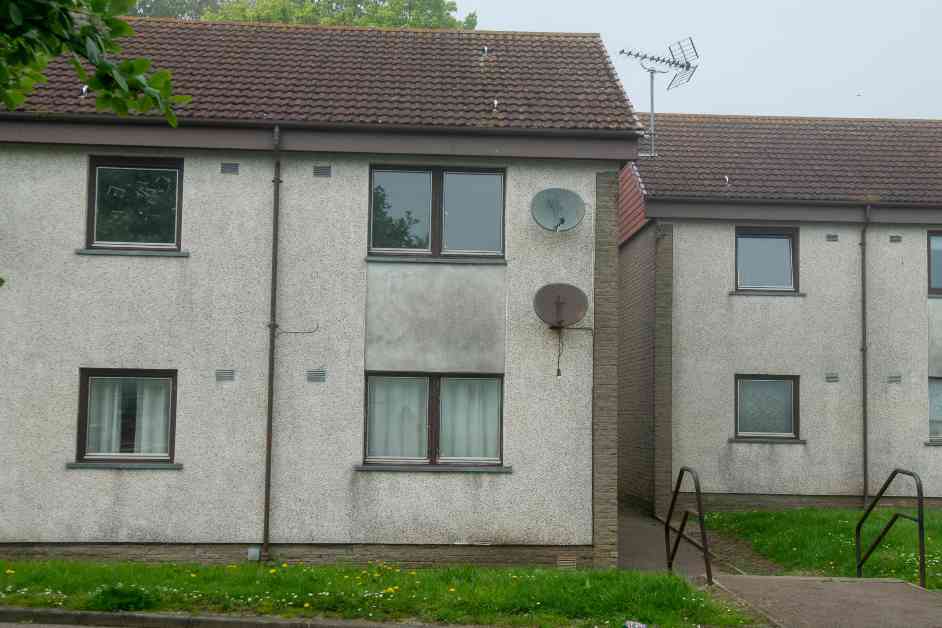Campaigners are rallying for accountability from local councils regarding the issue of potentially hazardous reinforced autoclaved aerated concrete (RAAC) found in thousands of homes across the UK. The demand for increased scrutiny comes as concerns grow over the safety and longevity of structures built with RAAC, prompting calls for action to support affected homeowners and tenants.
RAAC Crisis: Growing Concerns and Calls for Action
The UK RAAC Campaign Group, led by Chairman Wilson Chowdhry, is spearheading efforts to hold local authorities and developers accountable for using what they deem as substandard concrete in residential construction. With over 2000 homes identified to contain RAAC, the campaign is pushing for a national fund to assist those impacted by the crisis. Additionally, they are advocating for a public inquiry to investigate the root causes of the widespread issue.
Chowdhry’s personal involvement in the matter began when his daughter, a first-time homeowner in Aberdeen, was informed that her property was at risk due to RAAC. This revelation propelled him into action, becoming a vocal advocate for homeowners facing similar predicaments. The campaign’s petition, submitted to the Scottish Parliament, highlights the urgency of addressing the RAAC crisis and providing support for those affected.
Financial Implications and Reconstruction Challenges
The potential scope of the RAAC crisis is staggering, with estimates suggesting that over 2000 homes may need to be demolished and rebuilt, primarily in Scotland. The financial burden of such extensive reconstruction is estimated to range between £20 million to £25 million for demolition alone, and up to £130 million for rebuilding, spanning several years.
The prospect of financial ruin looms large for many homeowners caught in the midst of this crisis. Chowdhry emphasizes the need for comprehensive support to prevent individuals from facing insurmountable mortgage payments and the inability to secure alternative housing. The impact is particularly severe for vulnerable groups such as the elderly and those in palliative care, who may struggle to navigate the uncertainties brought about by the RAAC issue.
Challenges in Seeking Accountability and Resolution
Despite efforts to raise awareness and push for accountability, campaigners like Chowdhry have faced setbacks in their quest for justice. The decision by Aberdeen City councillors to demolish RAAC-affected properties and reimburse owners at market value, subtracting remediation costs, has been met with disappointment and criticism. This approach, seen as shifting responsibility onto homeowners, has further exacerbated tensions between affected individuals and local authorities.
The need for transparency, accountability, and swift resolution to the RAAC crisis remains paramount. Chowdhry’s campaign efforts to bring the debate to Holyrood underscore the urgency of addressing the systemic issues that have allowed substandard materials to be used in residential construction. The call for surveyors to be held liable for undisclosed defects, the establishment of a register of high-risk buildings, and safeguards against financial exploitation by banks are crucial steps in safeguarding homeowners’ rights.
Government Response and Collaborative Efforts
In response to mounting concerns, Housing Minister Paul McLennan has assured that the Scottish government is taking the RAAC crisis seriously. Regular meetings are being held to ensure best practices are implemented, and discussions with the UK Government are underway to explore funding sources for addressing the crisis. Local authorities, as key stakeholders in the resolution process, have been urged to provide guidance and support to affected homeowners, acknowledging their responsibility in ensuring building safety.
The collaboration between government bodies, local councils, and advocacy groups is essential in navigating the complexities of the RAAC crisis. While challenges persist in finding equitable solutions for impacted individuals, the commitment to transparency, accountability, and support is crucial in rebuilding trust and ensuring the safety of all residents.
In conclusion, the demand for council accountability on RAAC issues continues to resonate with campaigners and affected homeowners alike. As efforts to address the crisis intensify, the need for comprehensive support, transparent communication, and swift action is more pressing than ever. By advocating for the rights of those impacted by the RAAC crisis, campaigners are not only seeking justice but also striving to prevent similar incidents from occurring in the future.
































